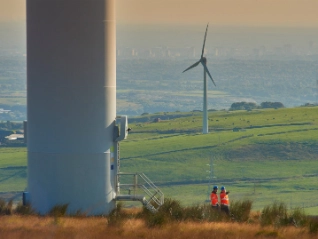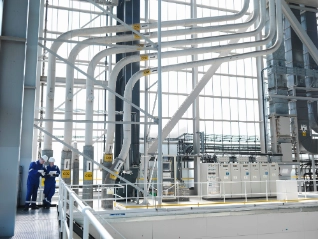
Insolvencies normalise, but trade war brings new risks

The promise and potential pitfalls of AI in international trade

Why now is the time to buy trade credit insurance

Ten tips to get your customers to pay on time

Case studies

Testimonials
Industry growth slows as global trade applies the brakes


Can South Africa's GNU party overcome tensions and structural challenges to unlock GDP growth?

US tariffs, geopolitics and lower demand trigger a contraction of global automotive production in 2026

Tari...

Pharmaceuticals businesses throughout the world are reviewing their operational and...

Chemicals production growth projected to slow in 2025/2026 due to US tariffs

Trade tensions trigger higher insolvencies
Viewing 7 out of 173
This year, Atradius celebrates a remarkable milestone: a century of operations in the Netherlands.


Tariffs and tight margins are...

Thanks to this partnership, our clients in Spain can become sellers on Alibaba.com’s B2B marketplace without paying an entry fee

Europe has committed to a new era in...

Trade tensions, AI investment and geopolitical shifts dominate the global trade agenda. The key takeaway: business must...

The US President’s latest tariff threat exposes the weaponised interdependence that has become a flashpoint for...

Navigating global payment risk in a year of rising insolvencies and shifting customer behaviour
Viewing 7 out of 61







Viewing 7 out of 33
Understanding why credit insurance provides broader coverage, strategic risk management and financial stability compared...


How credit insurers evaluate risk and determine appropriate credit limits

Explore how surety bonds and bank guarantees work, their similarities and differences, and what they mean for...

Explore the trade-offs between credit insurance and self-insurance to protect cash flow and...

Globalisation makes market expansion inevitable, but entering new territories remains a complex and...

Credit...

Viewing 7 out of 30
Every customer is a...


Compare Credit Insurance and Atradius partner to Preventing £500,000 loss for electrical engineering contractor

Managing Director William Buchanan explains how Atradius helped Gressingham Group achieve mitigate risk and support their growth plans

Supporting existing and new customers growth and volume requirements while continuing to innovate in a fast paced, high...


With the backing of Atradius’s resources, EnCom Polymers has been able to expand business with existing customers and go after new business...

With the backing of Atradius’s resources, EnCom Polymers has been able to expand business with existing customers and go...
Viewing 7 out of 12
Omron has achieved sustainable growth while navigating the uncertainties of China-US trade relations and regional manufacturing transformation.


FERM (International) offers competitive payment terms and limits their credit risk to developing countries by using Atradius Dutch State Business (DSB) and...

El Ganso credits our support in helping the fashion brand grow from a domestic-focused Spanish startup to a successful international business.

By providing open dialogue, insight and valuable credit information we helped Brook Green Supply improve their internal credit...

Late payers prompted content marketing agency KMOdynamoo to take out an Atradius credit insurance policy and has resulted in better debtor management.

Janson Bridging (International) uses export credit insurance from Atradius Dutch State Business (DSB) to offer favourable credit terms to customers...

Our agility and local knowledge of worldwide markets and buyers are key reasons why textiles business Georg Jensen Damask say they collaborate...
Viewing 7 out of 9

































